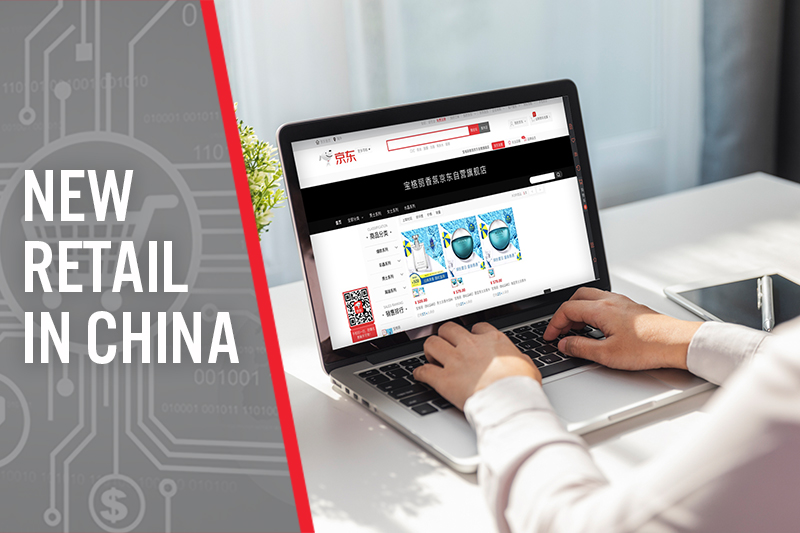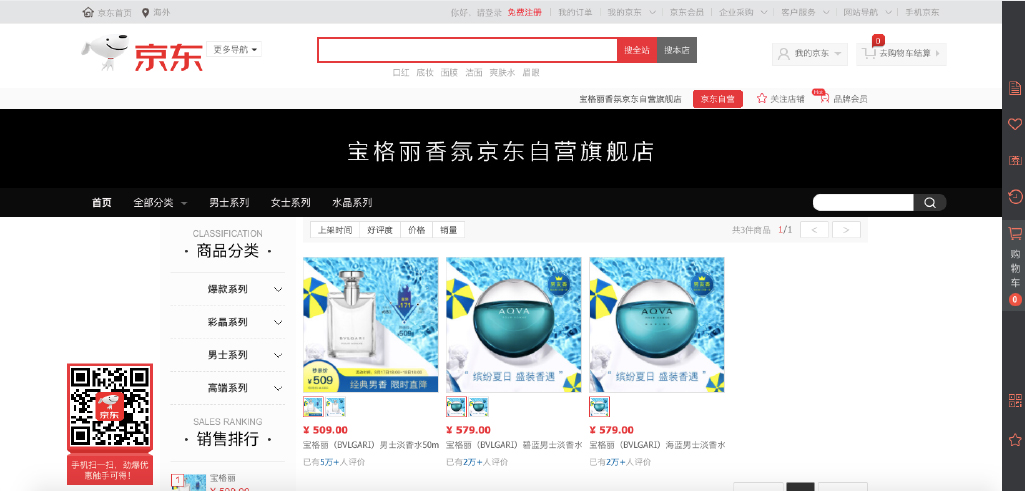
DIpil Das
New Retail in China
“New Retail” is a model for integrating online retail, offline retail and logistics across a single value chain powered by data and technology. The term was coined by Alibaba Group, although many other companies in China and elsewhere are implementing various elements of the model. In our New Retail in China series, we review the latest trends in New Retail, with a focus on major digital platforms and multichannel retail companies in China.What’s New in New Retail
JD.com: Recent Developments We present major developments at JD.com since June 2021, including new launches by international brands on the platform, its latest omnichannel marketing initiative and the company’s latest supply chain partnership. LVMH and Victoria’s Secret Open Flagship Stores on JD.com for Major Shopping Days Chinese e-commerce giant JD.com grew net revenues by 26.2% in its second quarter, ended June 30, 2021, supported by its 18-day 6.18 Shopping Festival held during the period. The festival is now China’s second-largest annual online shopping event, behind Alibaba’s Singles’ Day. The company noted that the total transaction volume of the shopping event reached approximately ¥343.8 billion ($53.1 billion). Between June and August, American intimates retailer Victoria’s Secret and multiple brands owned by French luxury conglomerate LVMH launched on JD.com, in time for China’s Valentine’s Day on August 14. Among LVMH’s brands, Benefit Cosmetics, Berluti, Bulgari, Givenchy and Guerlain began selling through flagship stores on JD.com, covering sectors including apparel, cosmetics, jewelry, fashion accessories and skincare. [caption id="attachment_132586" align="aligncenter" width="724"] Bulgari’s flagship store webpage on JD.com
Bulgari’s flagship store webpage on JD.com Source: JD.com [/caption] Coresight Research insight: We estimate that online retail comprised around 25% of total personal luxury sales in Mainland China in 2020, equating to some $14.1 billion in online sales. In 2021, we expect to see online luxury retail growth of 40%–50%, amounting to $19.7–21.1 billion in sales, moderating from 2020’s 104% growth. We expect that more international luxury brands will follow LVMH and enter China via established marketplaces to reach one of their most valuable audiences, especially at a time when global travel—a key factor for luxury consumption—is still facing restrictions. Click here to read our Think Tank on luxury consumption in China. JD.com and Walmart Launch Omnichannel Marketing Initiative On June 7, JD.com and Walmart launched an omnichannel marketing initiative, “Jing-Wo New Initiative.” Jing-Wo refers to JD.com and Walmart’s names in Chinese. The joint venture will offer brands guidance on supply chain practices and marketing, aiming at integrating product launches across channels, expanding customer bases and increasing sales. The initiative will leverage Walmart’s network of over 400 stores in the country, as well as flagship and official stores on JD.com. JD.com Collaborates with Sephora and Dada Group; Partners with Automotive Company Geely On August 13, JD Beauty and LVMH-owned beauty retailer Sephora announced a partnership with delivery and retail platform Dada Group. Sephora’s products are now listed on JD.com and Dada Group drivers aim to deliver products from the Sephora store nearest to consumers in under one hour. Currently, 70 of Sephora’s stores in China are available on JD.com and the company aims to list all of its stores in the country on the platform by the end of the year. On July 26, JD.com announced a partnership with automotive company Geely, aiming to leverage supply chain advantages—including internal logistics, omnichannel and smart warehousing. The move comes as part of JD.com’s expansion of supply chain automation initiatives, building on its launch of automated driverless delivery vans announced in October 2020. Alibaba: Recent Developments We present developments at Alibaba since June 2021, including its partnership with the government of Hainan province, its new startup investment initiative “Project AsiaForward” and its announcement of second-quarter results. Alibaba’s Cainiao Partners with Hainan Province Government On June 10, at the Global Smart Logistics Summit 2021, Alibaba’s logistics company Cainiao announced its partnership with Hainan government and detailed its plans for upcoming investments in the province. The partnership will set out to build a global supply chain center in Hainan, create smart logistics infrastructure and upgrade the province’s global freight network. Cainiao will set up customized central warehouses for sectors including cosmetics, luxury apparel and pharmaceuticals. Cainiao aims to attract 1,000 duty-free merchants to Hainan through the initiative and believes that there is potential to transform the province into a new transnational hub. It also expects the public-private partnership to lead to innovation in smart technologies. Alibaba Cloud To Invest $1 billion in Emerging Startups On June 8, Alibaba Cloud announced its “Project AsiaForward” initiative, which will invest of $1 billion over the next three years into the startup ecosystem and development of digital infrastructure in Asia-Pacific. The company indicated that the initial funding round would be used to help build a talent pool of over 100,000 software developers and startups in the next three years. Alibaba Announces Second-Quarter Results On August 3, Alibaba announced results for its second quarter, ended June 30, 2021. It registered ¥205.7 billion ($31.86 billion) in revenue, a 34% increase year over year. However, the company’s income from operations decreased by 11% year over year, falling to ¥30.84 billion ($4.7 billion). The company attributed the decrease to investments in community marketplaces and in its Taobao online shopping platform. Despite Alibaba’s steady stream of investments, sales and partnerships since June, regulatory roadblocks and legal proceedings from China’s authorities could dampen its future prospects. ByteDance: Recent Developments ByteDance Expands Presence in Livestreaming Market On July 2, technology company ByteDance—the developer of videosharing platforms TikTok and Douyin—announced its investment in brand management company Hangzhou Weinian to expand its presence in China’s livestreaming market. Hangzhou Weinian manages leading social media influencer Li Ziqi, who has millions of subscribers across several platforms. As livestreaming e-commerce is undergoing rapid growth due to the pandemic, brands and social media platforms are banking on the sector to bring in new market segments. ByteDance aims to generate traffic by bringing Li onboard, to compete with companies including Alibaba and Kuaishou.
- Click here to read more Coresight Research coverage of livestreaming.
Appendix Figure 1. New Retail Developments in China: Last 12 Months [wpdatatable id=1253 table_view=regular]
Source: Company reports/Coresight Research Investments and Acquisitions in New Retail To expand New Retail abilities, Alibaba, Tencent and JD.com have invested in logistics firms, online marketplaces, content-creation companies, and even brick-and-mortar stores. See selected transactions in the following tables.
Appendix Figure 2. Alibaba New Retail Investments and Acquisitions: Last 12 Months [wpdatatable id=1254 table_view=regular]
Source: Company reports/Coresight Research
Appendix Figure 3. Tencent New Retail Investments and Acquisitions: Last 12 Months [wpdatatable id=1255 table_view=regular]
Source: Company reports/Coresight Research
Appendix Figure 4. JD.com New Retail Investments and Acquisitions: Last 12 Months [wpdatatable id=1256 table_view=regular]
Source: Company reports/Coresight Research